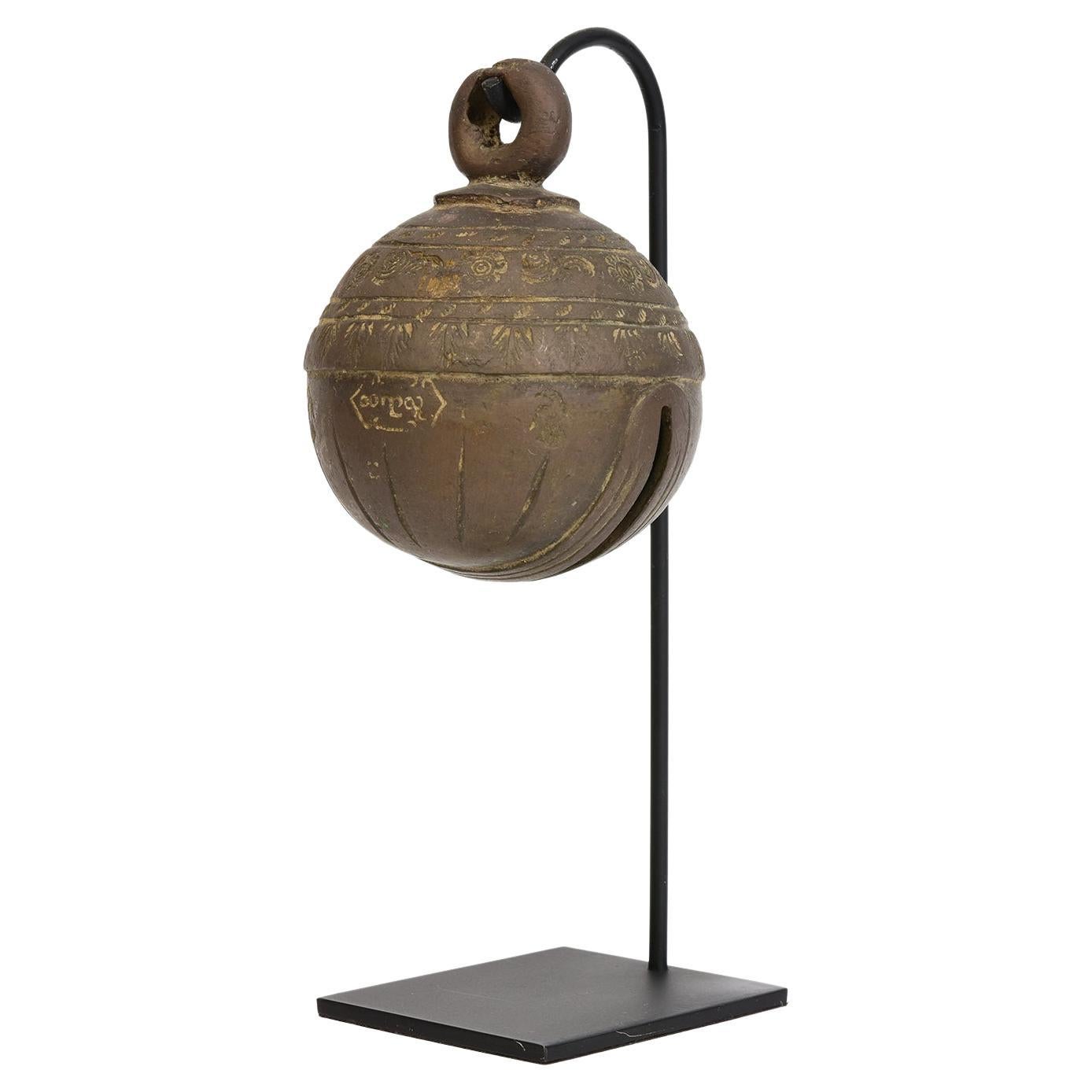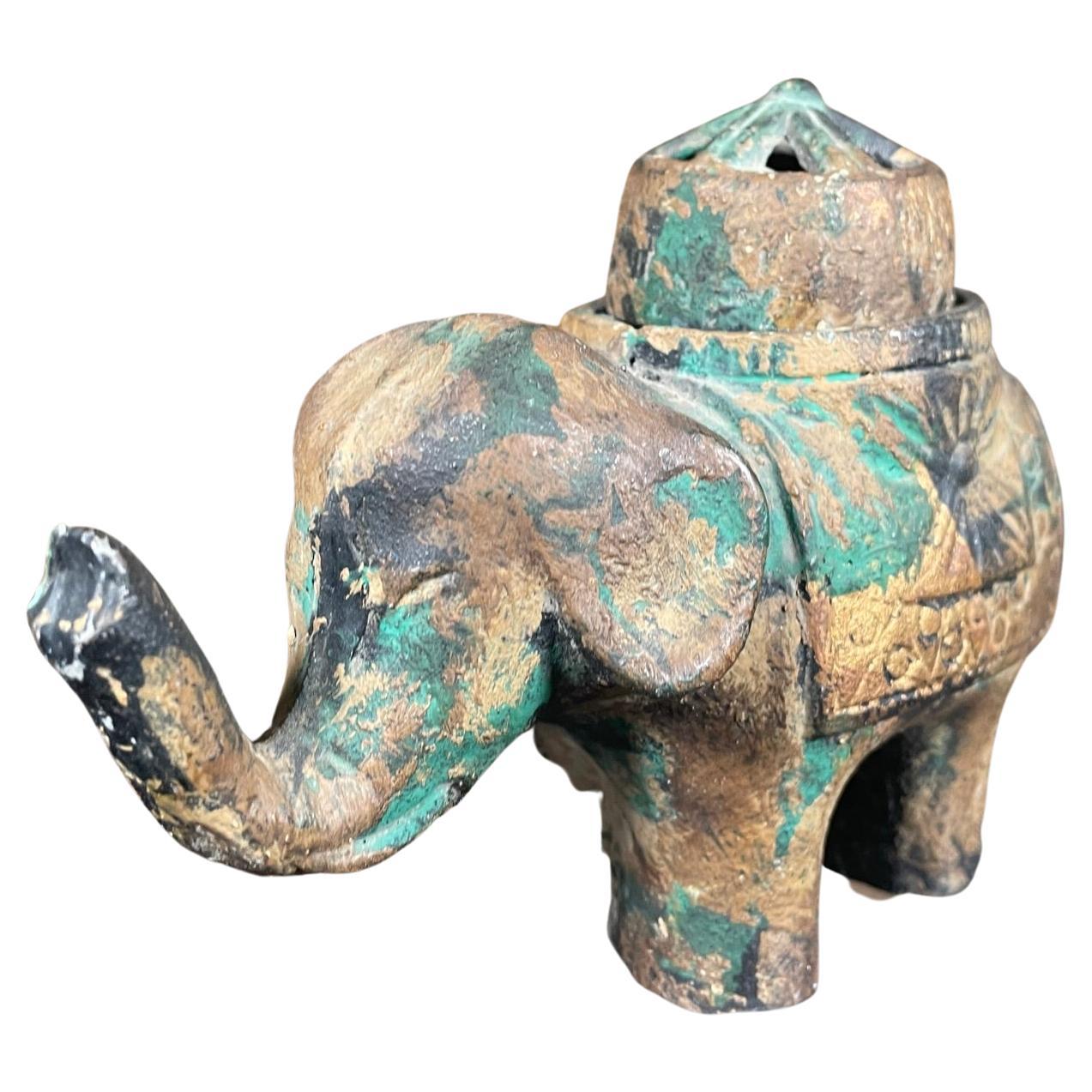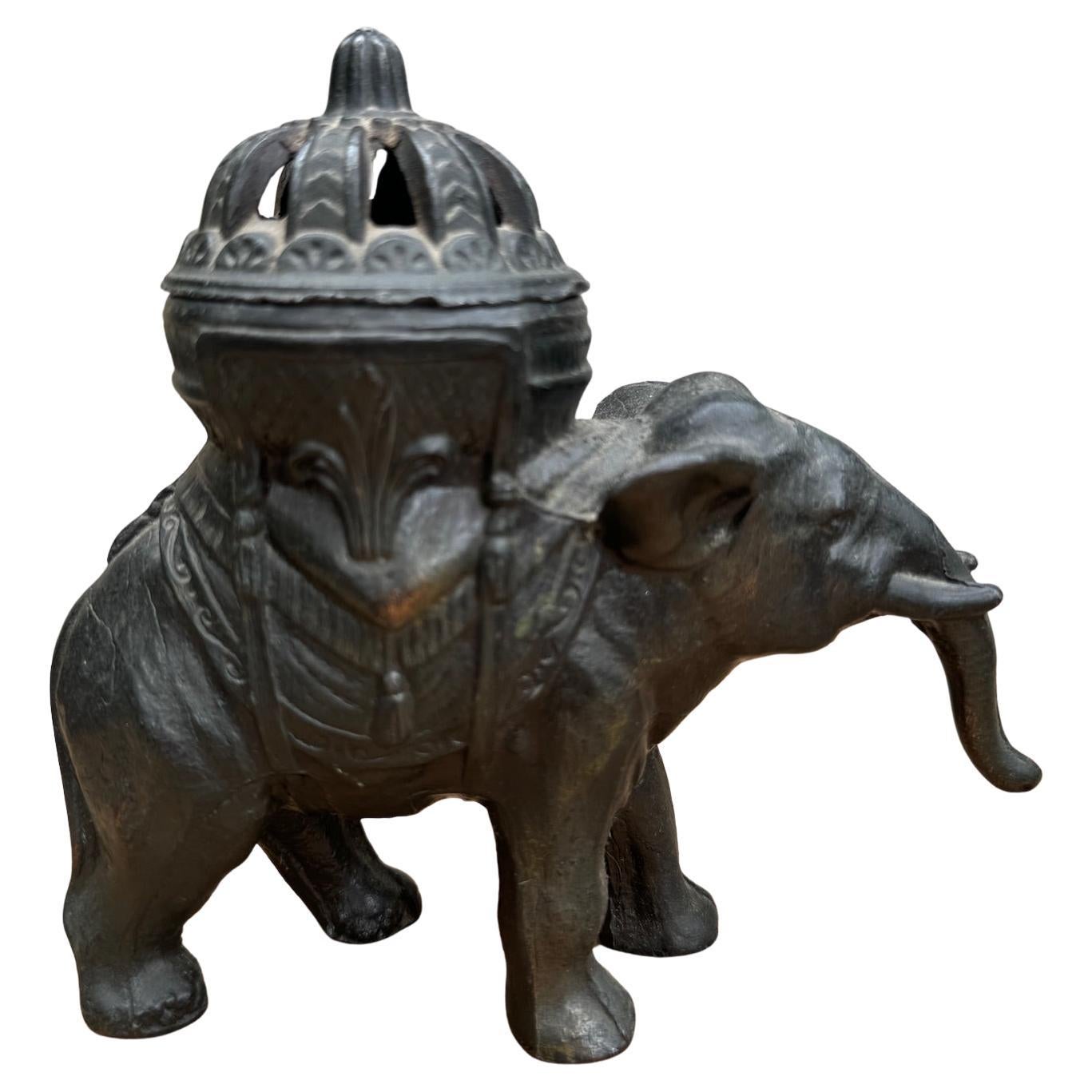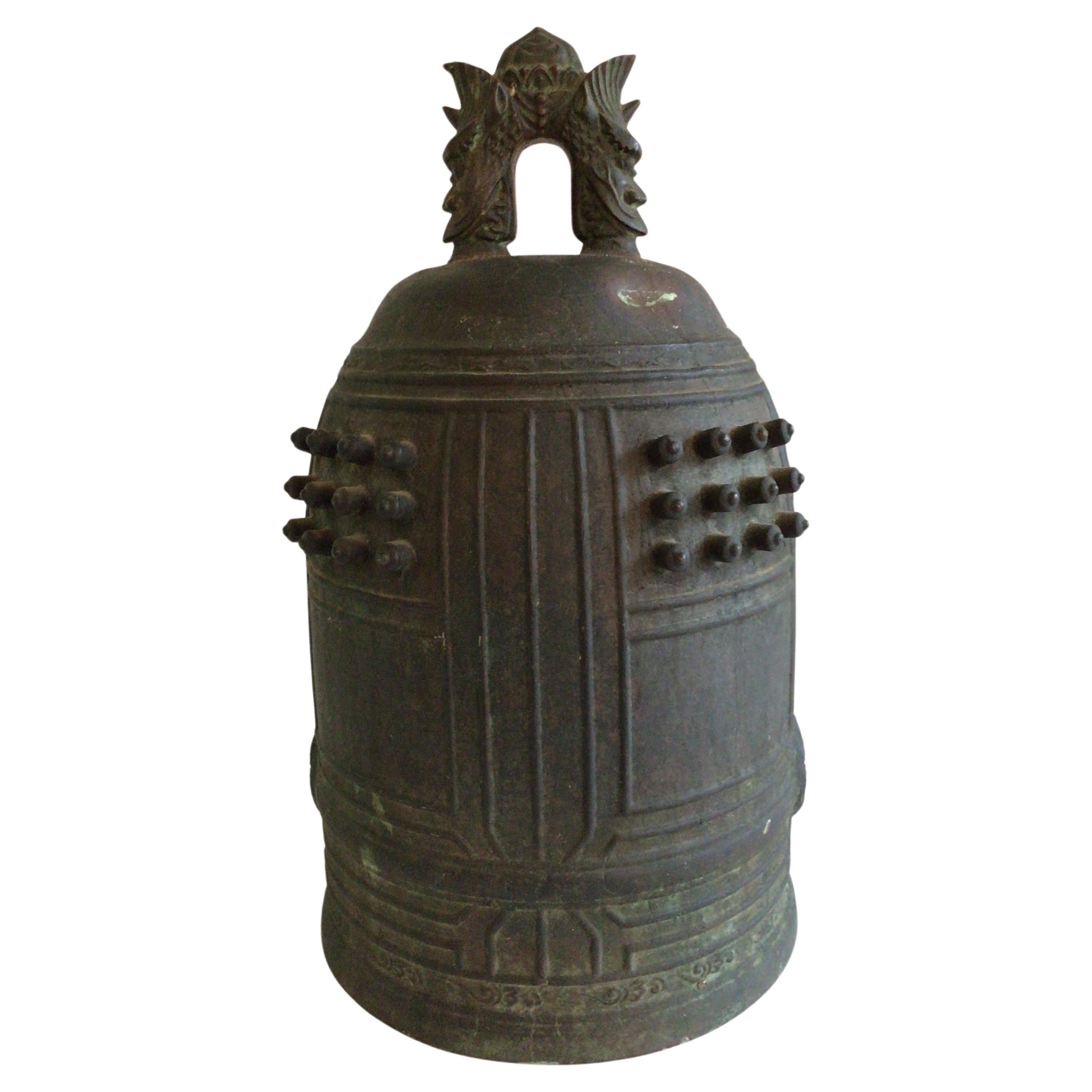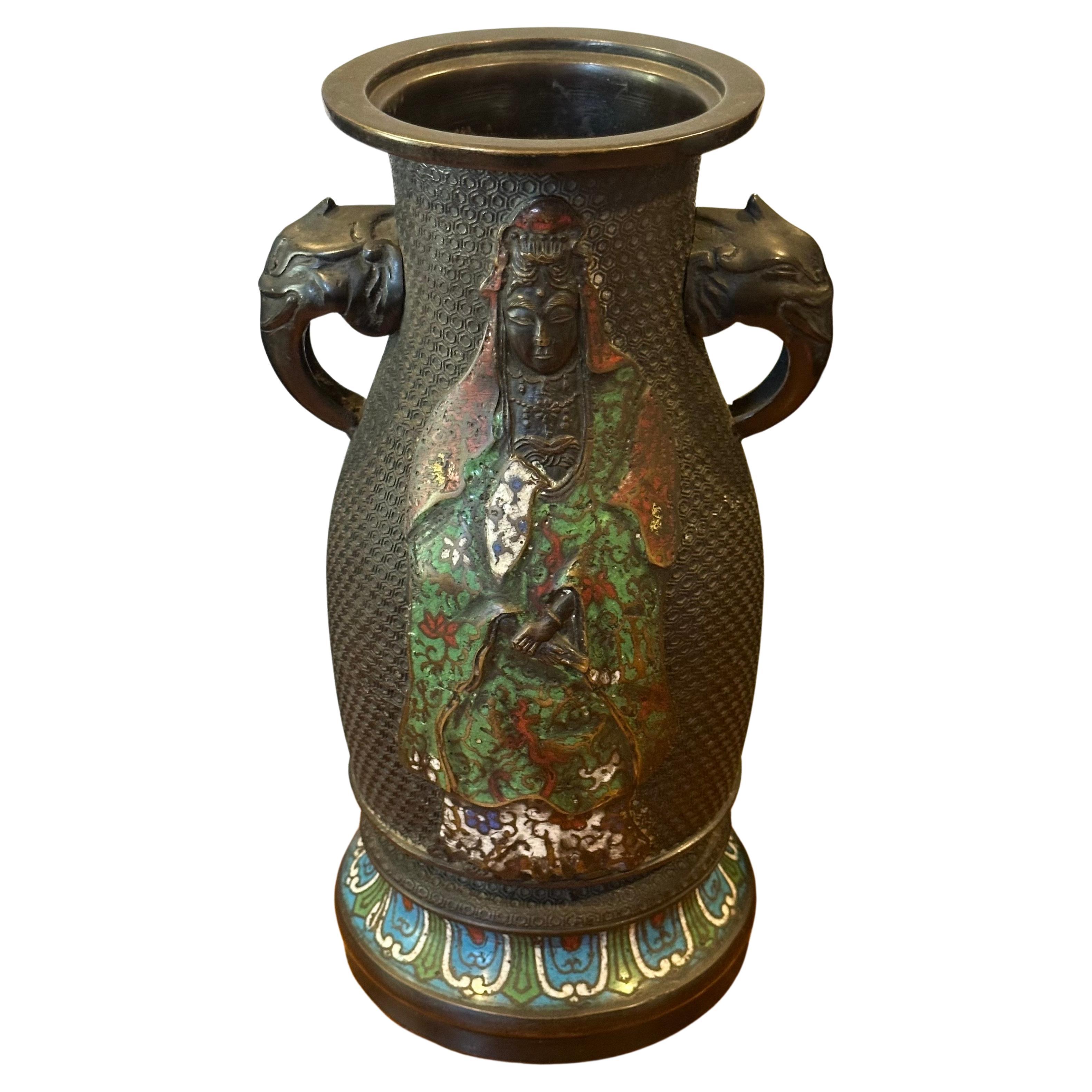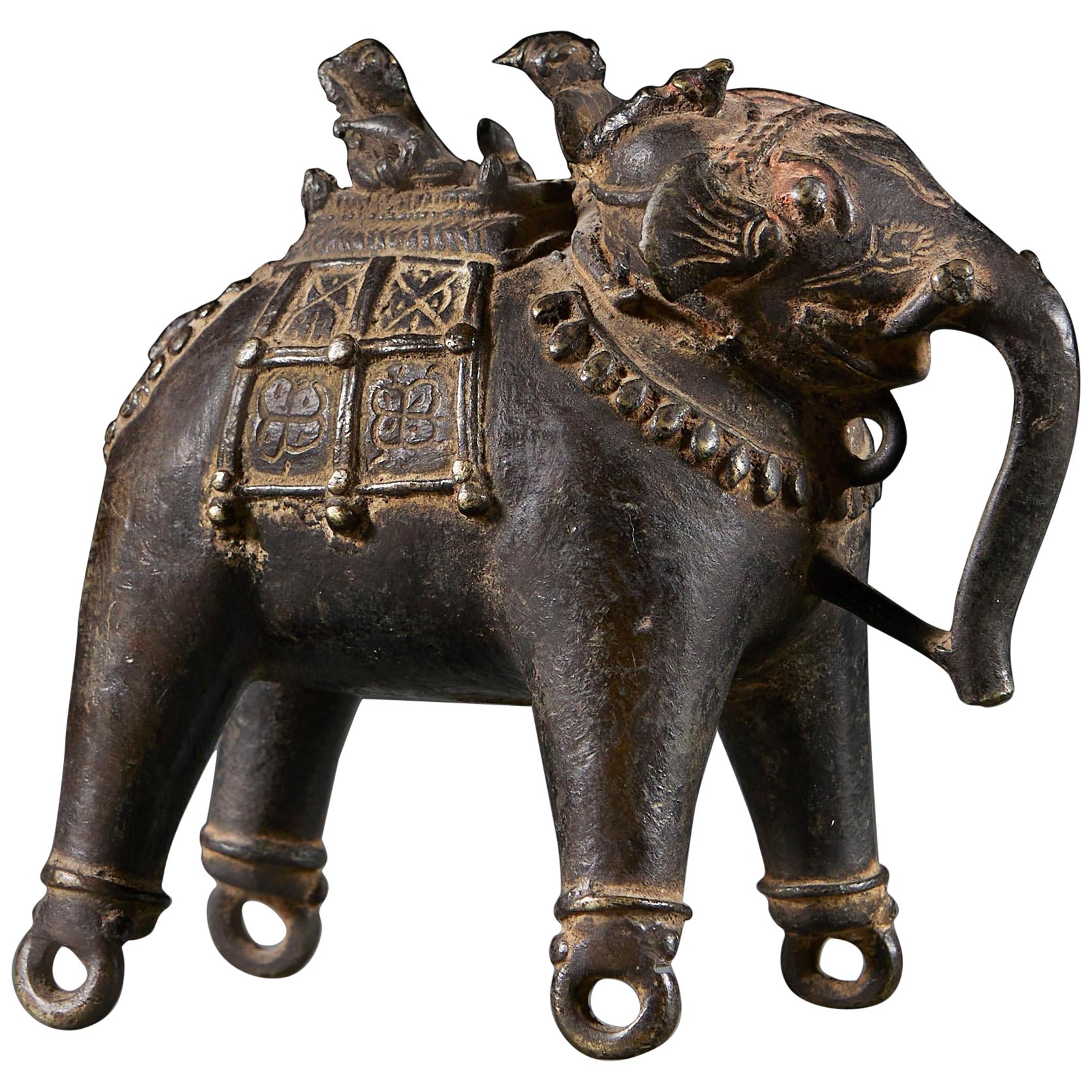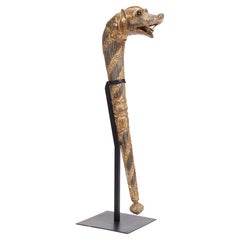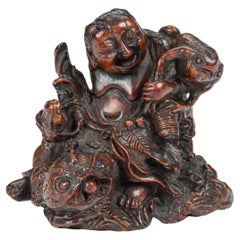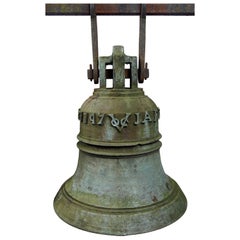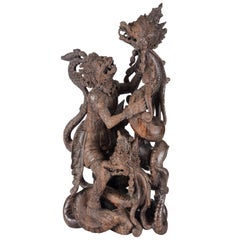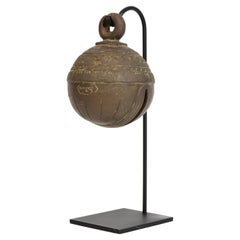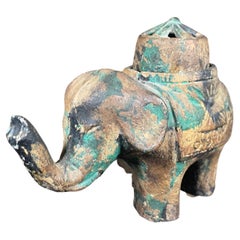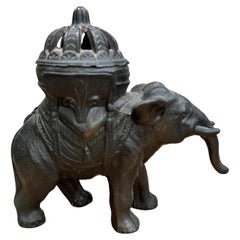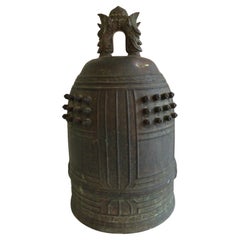Items Similar to A beautifully decorated Burmese bronze elephant bell
Want more images or videos?
Request additional images or videos from the seller
1 of 5
A beautifully decorated Burmese bronze elephant bell
$2,126.61
£1,594.03
€1,800
CA$2,921.61
A$3,261.70
CHF 1,709.08
MX$39,926.40
NOK 21,705.35
SEK 20,465.39
DKK 13,702.26
About the Item
Myanmar, 19th century
The bells were commonly crafted from bronze using the lost-wax casting technique, which enabled artisans to create intricate designs. Many showcase detailed motifs and patterns, often drawing inspiration from nature or religious themes, giving each bell a distinct character. This level of artistry highlights the exceptional skill of Burmese metalworking traditions.
- Dimensions:Height: 4.73 in (12 cm)Diameter: 3.75 in (9.5 cm)
- Materials and Techniques:
- Place of Origin:
- Period:
- Date of Manufacture:19th century
- Condition:Wear consistent with age and use.
- Seller Location:Amsterdam, NL
- Reference Number:1stDibs: LU5458242076932
About the Seller
5.0
Recognized Seller
These prestigious sellers are industry leaders and represent the highest echelon for item quality and design.
Established in 1985
1stDibs seller since 2020
23 sales on 1stDibs
Typical response time: 2 hours
- ShippingRetrieving quote...Shipping from: Maastricht, Netherlands
- Return Policy
Authenticity Guarantee
In the unlikely event there’s an issue with an item’s authenticity, contact us within 1 year for a full refund. DetailsMoney-Back Guarantee
If your item is not as described, is damaged in transit, or does not arrive, contact us within 7 days for a full refund. Details24-Hour Cancellation
You have a 24-hour grace period in which to reconsider your purchase, with no questions asked.Vetted Professional Sellers
Our world-class sellers must adhere to strict standards for service and quality, maintaining the integrity of our listings.Price-Match Guarantee
If you find that a seller listed the same item for a lower price elsewhere, we’ll match it.Trusted Global Delivery
Our best-in-class carrier network provides specialized shipping options worldwide, including custom delivery.More From This Seller
View AllAn Indian part-gilt silver-clad ceremonial sceptre or mace with a tiger’s head
Located in Amsterdam, NL
Northern India or Deccan, late 19th century
L. approx. 82 cm (excl. stand)
Provenance:
Private collection, United Kingdom
This remarkable gilt-silver soonta (ceremonial sceptre) also known as choba (ceremonial mace) with a tiger's head stands out as an unparalleled example. It has a wooden base, clad with thick sheet part-gilt silver and has fine details such as teeth and a curling tongue. Especially with the inlaid glass eyes, in combination with the grand sculptural design, it would have been integral to an Indian maharaja’s attire, known as lawajama in North India and biruthus in South India, as referenced by Jackson & Jaffer. They would symbolise authority, power, and sometimes an attribute of various deities, particularly those associated with strength or combat. For instance, the Hindu god Hanuman, known for his immense strength, is often depicted holding a mace (*chob* or gada in Sanskrit). Similarly, the god Vishnu and his avatar Krishna are also frequently depicted with a mace among their other attributes.
Courtiers would raise these sceptres wrapped in rich brocades, with the head visible, during processions, signalling their association with the monarch. Alongside fly-whisks and standards, they were indispensable in ceremonial parades, underscoring the ruler's prestige. Terlinden notes that a soonta berdar was tasked with carrying the sceptre. These individuals, proficient in courtly manners, played key roles during audiences, from managing entrances to introducing guests. Their esteemed position often earned them generous rewards, including land grants. See for a depiction of sceptres in use the top right of a painting in the collection of the V&A, titled Processional scene with Amar Singh, ruler of Thanjavur (Tanjore), and Sarabhoji, from circa 1797.
For a very comparable piece, but with an elephant’s head, see the collection of the Indian Museum, Kolkata. For other less similar examples, see the V&A Museum London.
Sources:
A. Jackson & A. Jaffer, Maharaja: The Splendour of India’s Royal Courts, London, V&A Publishing, 1999
Christiane Terlinden Serra, Mughal Silver...
Category
Antique Late 19th Century Indian Metalwork
Materials
Silver
A Japanese rootwood sculpture of Gama Sennin
Located in Amsterdam, NL
Edo period, 18th century
H. 11 x W. 15 cm
Sennin’s are ascetics living as hermits in the mountains, ascribed with magic powers. This Sennin is sitting between rocks on a huge grim-...
Category
Antique 18th Century Japanese Sculptures and Carvings
Materials
Wood
Bell of the Dutch Colonial VOC Fortress in Jaffna, Sri Lanka
Located in Amsterdam, NL
The bell of the VOC fortress in Jaffna, Sri Lanka, marked JAFFANAPATNAM Ao 1747 VOC
Cast in Jaffnapatnam or Colombo from Japanese copper, 1747
Measures: Height 44 x diameter 36...
Category
Antique Mid-18th Century Sri Lankan Nautical Objects
Materials
Bronze
Very Fine and Detailed Balinese Sugarwood Sculpture of a Ramayana Scene
Located in Amsterdam, NL
A fine Balinese Suarwood (Albizia saman) sculpture depicting a scene from the Ramayana
Gianyar, 1970-1980
Measures: H. 48.5 cm
The sculpture depicts a scene from the Ramayana....
Category
20th Century Balinese Sculptures and Carvings
Materials
Wood
Rare Chinese Tonkin Ware Cup-and-Saucer, Early 18th Century
Located in Amsterdam, NL
A Chinese made tonkin ware gilt- and lacquer cup and saucer
China or Japan, Chinese artisans, early 18th century
The black-lacquered cup with gilt handles in the shape of sculptured chrysanthemums and a lobbed edge decorated with gilt engraved border, with a gilt foot-ring that fits into the saucer ring, with two cartouches showing partly undercut gilt relief trees and birds on a gilt granulated background, black lacquered bracket-lobed edge, depicting gilt engraved peony scrolls and three cartouches decorated with high relief gilt trees and birds on a gilt granulated background, the centre with engraved chrysanthemum, enclosed by a raised ring upon which the cup fits, around which a circular panel decorated with high gilt relief trees, flowers, birds and a butterfly on a gilt granulated background.
Measures: Cup: H. 5.7 x W. 8.5 cm
Saucer: Diameter 13 cm
Provenance:
Collection Felix Schäfer
Note:
The decoration of the cup and saucer is identical to the slightly smaller cup and saucer...
Category
Antique Early 18th Century Chinese Chinese Export Metalwork
Materials
Other
Large Brazilian or Guyana Amazon Indigenous Macana War Club, 18th or Earlier
Located in Amsterdam, NL
A splendid and rare Amazon indigenous wamara wood Macana war-club
Southern-Guyana or Northern Brazil, Wapitxana group of the Aruak peoples, 18th century, possibly earlier
Measure: H. 43 cm
The deep patina of the club present, and the residue on the part where it was held, attest to its great age.
This unusually large Macana is decorated with several incised whitened anthropomorphic and human figures, a decoration only found on one other documented club in the British Museum, which is illustrated in: Hjalmar Stolpe, Amazon Indian...
Category
Antique Early 18th Century Brazilian Native American Objects
Materials
Hardwood
You May Also Like
19th Century, Antique Burmese Bronze Elephant Bell with Stand
Located in Sampantawong, TH
Burmese bronze elephant bell with stand.
Age: Burma, 19th Century
Size: Height 12.5 C.M. / Width 9 C.M.
Size including stand: Height 23.5 C.M.
Condition: Nice condition overall...
Category
Antique 19th Century Burmese Antiquities
Materials
Bronze
$384 Sale Price
20% Off
Japan Gold Gilt Good Luck Elephant Censer
Located in South Burlington, VT
Rare find: Ancient Japanese design gilt censer of a good luck elephant- signed Japan
This model elephant sculptural LED candle holder and censer was crafted in a handsome gilt finish iron of an effigy of an ancient elephant...
Category
Mid-20th Century Japanese Sculptures and Carvings
Materials
Iron
$80 Sale Price
83% Off
Japan Good Luck Elephant Censer
Located in West Hollywood, CA
This charming censer features an elephant, a symbol of strength, wisdom, and good fortune in Japanese culture. The elephant's back opens to hold incens...
Category
Early 20th Century Japanese Antiquities
Materials
Bronze
19th Century Bronze Temple Bell
Located in Tarrytown, NY
This 19th C. Japanese Buddhist bronze temple or monastery bell, features a stylized two-headed dragon loop handle at top, four studded panels at shoulde...
Category
Antique 19th Century Tibetan Antiquities
Materials
Bronze
Antique Bronze Champlevé Vase with Elephant Handles
Located in San Diego, CA
Antique bronze champlevé vase with double elephant handles, circa 1900s. The vase is in good vintage condition with a nice patina and measures 7"W x 6...
Category
Early 20th Century Chinese Chinese Export Metalwork
Materials
Bronze, Enamel
A 19th Century Indian Bronze Elephant Toy
Located in London, GB
India, circa 1880
A nineteenth century solid bronze Indian elephant mounted by a Mahout carrying one passenger in a traditional howdah carriage, incised with decoration throughout a...
Category
Antique Late 19th Century Indian Animal Sculptures
Materials
Bronze
